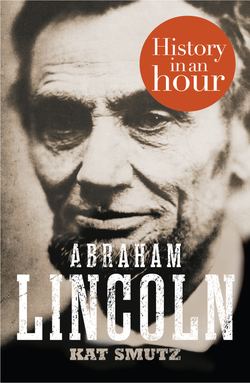Читать книгу Abraham Lincoln: History in an Hour - Kat Smutz, Kat Smutz - Страница 4
INTRODUCTION
ОглавлениеAsk any American schoolchild who the greatest president of the United States was, and he or she will probably say ‘Abraham Lincoln’. Teachers love to use Lincoln as an example of how the circumstances of birth do not necessarily predetermine what an individual can achieve. From a childhood of poverty, hardship and loss in the American wilderness, Lincoln achieved the highest political office in the country, a position comparable to that of a king or queen in Europe. His popularity can be attributed to what he accomplished while in office. His emancipation of African Americans held in slavery has made him the legendary hero who freed the slaves. But Abraham Lincoln was so much more.
Not all of Lincoln’s contemporaries saw him as the hero Americans look up to today. Public opinion of the man during his lifetime ranged from hero worship to declaring him to be evil incarnate. Any given individual’s opinion of the sixteenth president was often influenced by region, race, economics and social class as much as by politics. To slaveholders, he was a threat to their very way of life. They were well aware of Lincoln’s position on the issue of slavery and feared that if slavery ended, the agrarian economy in the South would collapse. To the African-American slaves who looked to Lincoln for their salvation he was Father Abraham, sent by God himself to free them from their oppressors.
As a young man, Lincoln earned a reputation for honesty, justice and intellect that endures to this day. He was a master storyteller, a master litigator and a great orator whose words are still quoted. In the political arena, his supporters saw his potential. In spite of being a self-taught, successful attorney, his detractors in both the North and the South saw him as a low-class, uneducated, uncouth barbarian from the wilderness. Some were certain that he would cause the fledgling nation, less than one hundred years old, to tear itself apart. Others were just as sure that he was the only hope of preserving it.
Lincoln left behind a legacy of political ‘firsts’. He initiated the first military draft and the first United States income tax, and was the first to allow African Americans to join the military. Lincoln has been given credit for establishing photojournalism by permitting photography of battlefields and military installations. He was also the first American president to be assassinated.
From his first attempt to run for public office, Lincoln’s political career is well documented. What we know of his life before politics comes primarily from those who knew him. Lincoln seldom spoke of his life as a young boy growing up in the wilderness of Kentucky and Indiana, losing his mother at a young age and his first business ventures. Even less is commonly known of his private life as a husband and father. Those close to Lincoln often commented that he seldom spoke of his life before he became president.
Family, friends, colleagues and even enemies have left behind their own accounts of Lincoln, told from their own viewpoints. Those accounts, along with Lincoln’s own papers, have been studied and written about by Lincoln scholars, and provide the bulk of the details about one of history’s most recognized icons. Among them, some of the answers can be found regarding the conditions that moulded Abraham Lincoln into one of the greatest leaders in the history of the United States, if not the world.
This, in an hour, is the life of Abraham Lincoln.
